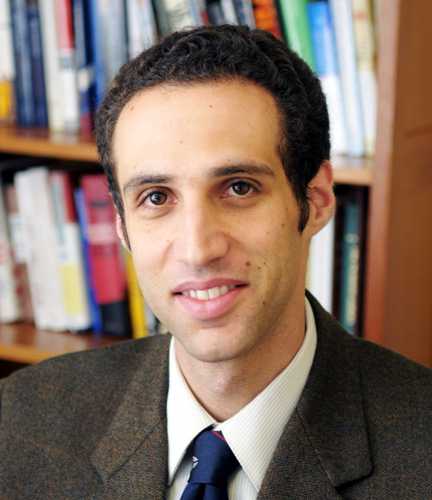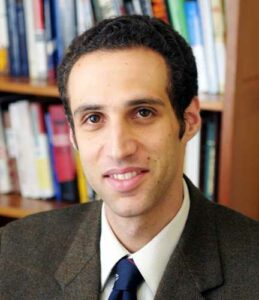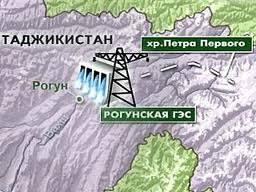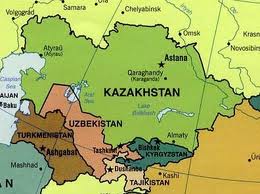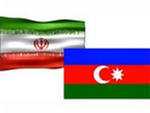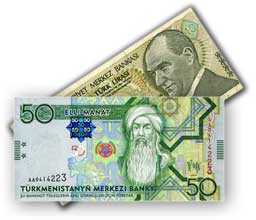Address by the President of the Republic of Uzbekistan
H.E. Mr. Islam Karimov at the Grand Meeting
dedicated to the 20th Anniversary of the Constitution
of the Republic of Uzbekistan
Dear friends!
Distinguished guests!
These days we are celebrating the landmark date in the modern history of Uzbekistan– the 20th anniversary of adoption of the Constitution, the Main Law which has laid a legal foundation of building a democratic state with market economy and civil society.
The entire course of a progressive development of Uzbekistan throughout the years of independence strongly confirms the enormous potential of our Constitution and that its principles, provisions and norms were deeply thought-out, consistent and credible.
During the historically short period of time Uzbekistan once one of the least developed republics of the former Soviet Union by its potential and living standards has grown to a sustainable and steadily developing country with a modern diversified economy that ensures a radical growth of well-being and quality of life of population, as well as a confident advancement along the path of democratic renewal and progress.
It is truly hard to imagine that despite the huge problems and hardships, challenges and trials we had to overcome, during 20 years Uzbekistan’s economy has grown more than 3,5 times, the gross domestic product per capita – 2,5 times, while we should keep in mind that the country’s population during this period has grown almost by 9 million people and now approaches to 30 million.
Suffice it to say that despite the ongoing global financial and economic crisis since 2008, among few countries in the world, in 2008-2012 the annual GDP growth made up not less than 8,2 percent in Uzbekistan. We have ensured the steady and balanced macroeconomic parameters, the surplus of the State budget and balance of payments, the growth of exports and official reserves. According to the Asian Development Bank, during the last three years the incomes of the country’s population have grown three-fold.
Today I believe there is no need to say that the principles and norms stipulated in our Constitution and the Uzbek model of development chosen by us and acclaimed throughout the world were assumed as a basis of the reforms and modernization of the country which are deep by their content and grandiose by their scale.
First of all, we are speaking about implementation of the concept of evolutionary development, de-ideologization of the economy, gradual democratic reforms, ensuring rule of law, recognition of a regulatory role of state as a principal reformer, implementation of the strong social policies with due consideration of specific peculiarities of our country.
This is a result of the deeply forethought reforms that meet the modern democratic requirements and aimed at creating a political system based on the principles of checks and balances, separation of functions and powers of legislative, executive and judicial branches of power, as well as reinforcing the role of political parties.
This refers to rejection of a centralized planning-distributive Soviet system and transition to generally accepted principles of free market economy, securing inviolability of private ownership as a crucial priority of Uzbekistan’s strategic development.
This also refers to ensuring accelerated and rapid development of small business and private entrepreneurship, establishing on this basis the middle class which now stands as the most important and decisive social strata of the society, guarantor of social and political stability and an active driving force along the path of reforms and modernization of the country.
We can draw upon many more vital factors that have conditioned and provided fast growth and establishment of Uzbekistan as an independent and sovereign state with developing democratic, socio-political and civil institutions and where the true value remains to be a human being, his rights, interests and freedoms.
Along with this, we well realize that democratization and liberalization, building a state principally new for us are not one-time but a long-run and continuous process which is not limited by a time-frame.
The Concept of further deepening the democratic reforms and establishing the civil society in the country, adopted by the Parliament in November 2010, is a logical and naturally determined continuation of the process of democratic renewal and modernization launched since the early days of Uzbekistan’s independence.
Proceeding from the principle of implementing the phased reforms on the basis of consistency and continuity of evolutionary development, the Concept, as a matter of fact, stands as a long-term national Strategy of realization of the paramount priorities of social, political and economic reforms in the conditions of dramatic changes taking place in the world.
Not extensive but substantial experience gained during the years of our independent development does confirm that it is only well-grounded course and consistent reforms based on justified models of democratic transformations, consideration of historical and concrete realities of contemporary world can ensure success and efficiency of these reforms, as well as the steadiness and necessary growth rates of the state and society, and population’s living standards.
Any artificial forcing of democratic reforms for the sake of some ambitions and wishful thinking, as a rule, leads to reverse results as it can be observed in many examples.
The Program to implement the aforesaid Concept envisages more than 50 draft laws and legal acts, and by now the Parliament of the country has adopted 12 laws and more than 30 laws are now being considered and discussed with involvement of a broad public, including foreign expert organizations.
The Law “On introducing amendments and addenda to the particular articles of the Constitution of theRepublicofUzbekistan(articles 78, 80, 93, 96, 98)” of 2011 served as the most important document in the sphere of democratization of state power and governance. This Law is aimed at ensuring more balanced distribution of constitutional authorities among the President – the Head of state, legislative and executive branches of power. It was introduced the institute of vote of no confidence in the Prime Minister; the significant powers were delegated from the President to Senate – the Upper Chamber of the Parliament and the Cabinet of Ministers of the country; the authorities of local legislative councils were considerably expanded.
The current legislation shall be further improved thanks to the amendments to the laws adopted by the Parliament “On elections to the Oliy Majlis of the Republic of Uzbekistan” and “On elections to the regional, district and municipal Kengashes of people’s deputies”, as well as the legislative acts on reforming and liberalization of the judicial system and expanding the sphere of application of Habeas corpus institute, implementation of the provisions of the Concept in the sphere of reforming the information system and ensuring freedom of speech, in particular, in the system of information and communication technologies and television, which play a decisive role in political modernization of the country.
The adoption of such laws as “On normative-legal acts”, “On social partnership”, “On public control”, “On transparency of activity of bodies of state power and governance” and other legal acts will stimulate dynamic development of civil society, strengthening of its role in protecting constitutional rights and interests of people, transparency of activity of governing structures and informing the population about administrative decisionmaking.
It is difficult to overestimate the role and significance of the Law adopted this year “On protection of private ownership and guarantees of proprietors’ rights” which secures the key principle of the priority of owners’ rights. From now on all emerging contradictions and ambiguities in the legislation in terms of mutual relations between a proprietor and state bodies must be resolved in favor of the proprietor.
The active laws in new wording “On family entrepreneurship”, “On competition”, “On guarantees of free entrepreneurship” and the decrees of the President adopted on their basis, namely “On measures to further improve business climate and provide more freedom to entrepreneurship” and “On measures to radically cut statistical, tax and financial reports, licensed types of activity and permissive procedures”, as well as other adopted decisions must become a guarantee for a sustainable development, diversification and modernization of the country’s economy and creation for this purpose of a favorable business climate and improvement of the attractiveness of the investment climate in the country.
It is of a special importance to provide monitoring of implementation of all of these legislative acts and legal norms aimed at comprehensive support and protection of the interests of business and private entrepreneurship in the national, external and world markets given the aggravation of the global crisis.
Dear friends!
I think that dwelling upon all measures on deepening the democratic reforms and developing the civil society inUzbekistanwould take too much time and it is obvious there is no need to do so.
Today it is much more important to realize and assess to what extent the laws and legal documents adopted and being passed in our country and, in general, everything what we do in our practical life ensure the rapid pace of the country’s development and modernization, as well as bring us closer to our prime goal – Uzbekistan’s joining the ranks of the developed and democratic nations of the world.
It would not be an exaggeration to say that among the key factors that ensure our dynamic development, there are no doubt, the changes taking place in the minds and worldview of our people, their attitude towards life and labor, as well as their growing political and legal culture.
We are getting rid of the burden and legacy of the totalitarian past, our people well understand how rapidly the modern world surrounding us is changing and comprehend their responsibility for the country’s future.
In short, our people clearly realize at what cost and at the expense of what uneasy ordeals and hardships we have achieved today’s frontiers, and what is especially important, without giving way to euphoria, make consistent and confident steps along the road of integration to the world democratic community.
And we do know what is our main buttress and decisive power in achieving the set goals.
The education system established practically anew, which is unique by its form and substance and raises a keen interest in the international arena, is already bearing fruits. Annually, more than 600 thousand young people of totally new generation enter the real life.
This is our educated, intellectually developed and vocationally trained youth with a new way of thinking who are devoted to the interests of their country and the people.
Dear friends!
The dynamic processes and changing situation in the modern world, aggravation of the existing and emergence of the new conflict situations, the growing standoff in the certain regions on interethnic and inter-religious differences, the continuing global financial-economic crisis and its consequences put on the agenda the serious challenges and threats.
The threat of proliferation of the nuclear technologies and weapons of mass destruction, the growth of intolerance, radicalism and extremism, and the appearance of the new hotbeds of tension arouse yet greater alarm in the world community.
I think today there is no need to speak that in the condition of globalization all these processes may well have a negative impact on security, stability and sustainable development of our region where the interests of the biggest states of the world cross.
We cannot but be seriously concerned by a possible further escalation of the situation, real threat of activization of terrorism, extremism and drug trafficking in neighboring Afghanistan and beyond due to the forthcoming withdrawal of the ISAF coalition forces before and after 2014.
It is not ruled out that such a scenario of development of events may lead to transformation of the confronting forces into an interethnic and regional standoff, and will open up a way for a new round of the civil war in Afghanistan. Many respected experts share this view.
We strongly believe that in the unfolding situation to prevent such a negative development of events there is the most acceptable option, and it has been discussed for a long time, – to form the Contact Group under the UN auspices with participation of the countries neighboring on Afghanistan, as well as the United States, NATO and Russia.
The major objective of this Group is to achieve a compromise among rival forces and establish the coalition Afghan government where the main ethnic, national and religious groups of Afghanistan would find their place.
There is no any worthy alternative to this decision.
Uzbekistan is building and will build its relations with neighboring Afghanistan on bilateral basis with due consideration of national interests of both countries and showing respect to the choice of the Afghan people in terms of the future of their country.
These very approaches are stipulated in the Law “On approval of the Concept of foreign policy activity of the Republic of Uzbekistan” of September 2012, which has drawn a wide response from the international community.
The Concept defines the fundamental principles and strategic priorities of our state in the international arena and stands as a logical continuation of the strategy carried out by Uzbekistan since the first years of independence.
Pursuing, first of all, its long-term national interests, which are the core value and principle of the country’s foreign policy, Uzbekistan clearly declares the following:
Uzbekistanshall keep distance from various military-political blocs and alliances; about its firm position on protection of its sovereignty and territorial integrity; about rejection of deployment of foreign military bases on its territory and about conducting independent, consistent and active foreign policy.
Uzbekistanshall not allow its involvement in various standoffs for ideological reasons and participation in military conflicts and hotbeds of tension in the neighboring states and territories.Uzbekistanshall be a strong supporter of the principle of good-neighborliness and peaceful settlement of emerging disputes.
In the complex conditions of the situation unfolding in the region, in the conditions of growing confrontation in the near and far surroundings, it is only such a foreign policy that may well meet the true wishes and aspirations of our nation to preserve peace and prosperity of the country, ensure the conditions necessary to live in accord and mutual understanding with neighboring countries and nations.
I am convinced that everyone present in this hall will agree with such an agenda that we have set forward. I am convinced that our people will support this policy.
Dear friends!
Declaration of the year 2012 as “The Year of Family” in our country and our decision to further develop on this basis the institute of family, which for over the span of centuries served as a pillar of our life and resolute component of our society, was welcomed by our people with a great enthusiasm.
All of us are well aware that naming this year envisaged the implementation of noble plans on further strengthening and enhancing the well-being of a family which embodies the eternity of life, happiness of each and every human being, his future, dreams and aspirations, as well as elevation of all of our works in this sphere to a new level.
I believe that the implementation of the State Program adopted in this connection, the outcomes of the large-scale measures envisaged in it, their practical impact and efficiency will be, certainly, extensively discussed in detail at the meetings on the local levels by the end of the year.
Today, with your permission, I think it is necessary to briefly dwell upon our work on the major and priority directions which reflect the substance and essence of this Program.
First of all, it is worth noting that a special attention was paid to the tasks of further development and improvement of legislation and legal framework related to strengthening the institute of family.
These tasks include the development of family business and creation of its legal framework which is a call of the times, as well as the introduction of amendments and addenda to the Family Code, adoption of the Law “On Trusteeship and Sponsorship” and number of other laws.
Throughout the year such crucial issues as enhancing the attention and care to family, primarily the young ones, their legal and social protection, giving them an extensive material and moral support have remained in the focus of our attention.
For this purpose the government adopted the resolution “On additional measures to extend social support to young families”. Based on this document, in 2012-2013 100 multi-storey residential buildings with 48 apartments each for young families are being constructed.
In 2012 alone 2,400 apartments were commissioned, while the same number of apartments shall be built next year. To create favorable conditions to purchase such apartments, 15 year-long soft mortgage loans worth 210 billion soums were allocated to thousands of young families.
The allocation by commercial banks of micro-credits worth nearly 80 billion soums to raise well-being and income sources of families and the micro-credits worth nearly 47 billion soums to fund the business projects of vocational college graduates will also serve these noble goals.
It won’t be a mistake to say that the allocation by commercial banks of consumer credits worth more than 71 billion soums to purchase durable locally-made items as furniture, household appliances and other goods has been a significant support in starting the household of young families and giving them a commendable start in life.
In the rural areas the exemption from taxes of individual entrepreneurs engaged in the consumer services for a three-year period has allowed to create 40 thousand jobs.
It is highly commendable that in the framework of the program we have paid a special attention to further enhancing the social care for the needy families.
Speaking about this, we should note that more than 8,600 livestock and 1 million 900 thousand poultries have been distributed among the needy families and the families without breadwinners.
This year the pupils from the low-income families were presented the winter clothes worth nearly 28 billion soums. In the new academic year nearly 510 thousand first-form pupils, as well as about 11 thousand disabled children receiving an in-home teaching were provided with 12 items of the school set at the expense of the state budget.
It is worth noting that with an aim to stimulate and actively involve the girls in physical training and sports 190 thousand sportswear sets were presented to them, while 50 thousand children enjoyed their holidays in the summer camps free of charge and 270 thousand children – on preferential terms.
Besides, more than one thousand socially-needy young families across the country have held their weddings at the expense of sponsorship funds.
In 2012 we have paid a priority attention to yet another challenging objective, i.e. the employment of population. In this respect, I think it is necessary to emphasize that thanks to establishment of small enterprises and micro-firms, more than 204 thousand new jobs have been created for women.
The fact that this year over 107 thousand young men and women were employed, 19 thousand unemployed youth were retrained and 52 thousand young men and women were involved in the paid social works became yet another important step in tackling a crucial problem of unemployment.
The total amount of credits allocated for over the last period on the basis of laws adopted by the parliament on the family business and further development of private entrepreneurship made up 905 billion soums, while the amount of credits designed to actively attract women to entrepreneurship totaled 450 billion soums.
Along with this, the micro-credits worth 218 thousand euros were allocated to businesswomen in the Republic of Karakalpakstan, Syrdarya, Navoi, Surkhandarya and Tashkent regions from the Savings banks foundation for international cooperation.
The unprecedented clear-cut measures have been taken to ease the work of our women and sisters, to more effectively utilize their potential in social, cultural, communal and economic spheres, as well as in child-raising.
In particular, the government adopted a resolution “On additional measures to improve social and living conditions of families”. According to this document, an extensive work was carried out to improve their provision with household and kitchen appliances, as well as to expand the consumer credits to ease women’s daily household routine.
Thanks to these measures, in 2012 the volume of consumer electronics production in our country has grown four times against the previous years.
It is of a special significance that families in our country have been allocated the three-year consumer credits worth 317 billion soums, since they are designed to alleviate the burden of our women and sisters, as well as to raise the quality of life of the population.
Here I would like to dwell upon yet another significant issue. This year based on the additional measures aimed at further improving the access of countryside communities to potable water through centralized water-pipelines the funds worth 108 billion soums and 96 million US dollars have been spent and over1220 kilometers of new pipelines have been built and reconstructed. This allows to provide 872 residential areas with clean potable water.
Besides, the extensive work was accomplished to strengthen the role of family in raising a harmoniously developed generation and enhance the practical cooperation of the institute of family with educational institutions.
As we speak about this, it is worth noting that the comprehensive measures were elaborated and are being implemented to enhance the cooperation among family, makhalla (neighborhood community) and educational institution.
Thanks to such measures, 76 percent of more than 4,5 million pupils in our country are actively involved in scientific, music and arts circles and sports classes established at schools and “Barkamol avlod” Children’s centers.
During this year nearly one thousand secondary schools were supplied with modern computer classes, the workrooms at more than 1150 vocational colleges were provided with necessary tools, hardware and raw materials. The “Electron ta’lim” (Electronic education) project was launched to convert the library collections of the institutes of higher learning into an electronic format.
Nearly 30 thousand boys and girls were able to enhance their knowledge of the IT technologies on the basis of the educational program specially designed to allow the countryside youth to master the basics of using the Internet.
Today we have the right to state with satisfaction that on the basis of “The Year of Family” Program an enormous work was accomplished in the sphere of public healthcare.
In particular, this year we have elevated into a new level the measures in the framework of the “Healthy mother – healthy child” Program which has been implemented in the country since the early years of independence and is internationally recognized.
Especially, in the framework of the “Salomatlik-3”Project and in cooperation with the United Nations, UNICEF and other international funds, the work on upgrading the skills of medical workers, qualified diagnostics with the use of cutting-edge equipment and early treatment of diseases has been carried out on the basis of a specific plan. Besides, a special attention was paid to encompassing all layers of population by the disease prevention measures.
With an aim to accomplish our supreme goal, which is to raise a healthy and harmoniously developed generation, this year 8 million 300 thousand women of fertile age and 8 million children underwent medical examination. Along with this, it should be noted that about 5 thousand lone senior citizens and disabled persons were thoroughly examined and rendered necessary medical assistance.
The extensive work has been carried out to enhance material and technical basis of the public healthcare system.
In this regard, it is of a special significance that the National Cardiology Center supplied with the cutting-edge medical equipment was built in Tashkent for 21,5 billion soums and nearly 23 million US dollars. This Center will have a special role in preventing and treating the cardiovascular diseases which now remain to be the most acute problem.
It should be noted that “The Year of Family” was full of various contests, festivals, exhibitions and artistic soirees. These events were aimed at cementing the place and raising the prestige of family which stands as an incomparable force in further strengthening the spiritual roots of our society, preserving our ancient values, shaping a sublime moral climate and confronting harmful influences alien to our national mentality.
Along with construction of other sites of social importance, the consistent works have been carried out in our country to build modern sports facilities and further expand the infrastructure in this sphere.
This year alone 168 children’s sports facilities have been commissioned and today more than 1 million 600 thousand children of 6 to 15 years of age can regularly go in for sports.
With an aim to further develop sports in the country and raise the Uzbek football to a new level, a state-of-the-art “Bunyodkor” Sports Complex was commissioned in the capital city of Tashkent. This fact has once again vividly demonstrated the socio-economic potential of our country.
There is no doubt that this Complex, which is the only one of its kind in Central Asia, will serve the cause of raising our youth both as physically and morally healthy generation, winning by our athletes the high places in the world arenas and further promoting Uzbekistan’s prestige in the world.
Our systemic work to develop the children’s sports now yields its practical results.
The two national football teams of Uzbekistan, i.e. under 16 and under 20, beat in tough competitions the strongest national teams of the Asian continent and won the right to participate in the World Cup next year. It is no doubt that such a triumph has stiffened the spirit of not only the football and sports fans, but also of our entire nation, and I will be right to say that it has filled our hearts with pride and delight.
Taking this opportunity, allow me to thank our young football players and all athletes who are keeping the flag of our Homeland high in the international sports arenas, as well as trainers and coaches, and wish them a happiness and success.
Dear compatriots!
We all well understand that it will take much time to speak in details about the activities accomplished in the framework of “The Year of Family” State Program. In this regard, I believe it is necessary to draw your attention to only one figure.
The funds worth more than 2 trillion soums and over 100 million US dollars from all financial sources have been spent to implement this Program. And I think it strikingly demonstrates how extensive and enormous are the scope of our works.
Taking this opportunity, on my own behalf and on behalf of our nation I would like to cordially thank all state and non-government organizations in our country, foreign and international institutions, ambassadors of foreign countries and representatives of diplomatic corps present in this hall, who contributed to this gracious and good cause, as well as all people who have sincerely labored to achieve this noble goal.
My dear compatriots, I think you will certainly agree with me if I say that “The Year of Family”, no doubt, shall leave its deep trace in the memory of our nation by its substance, spirit and philosophy, as well as practical impact and effect.
Dear compatriots!
Now we should exchange the views with you on how to name the forthcoming new year 2013.
The experience we have gained in this respect during the past years shows that we should not only give a beautiful name to the year, but this idea must be supported by a clear-cut objective and meaning related to absolute majority and nation-wide interests, and filled with influential and effective measures. This factor should play a decisive role in taking this decision.
Simply speaking, while naming the year, above all, there must be such noble goals and objectives as accomplishment of the tasks which are in the minds of each and every person, each family and our entire nation, as well as acceleration of our progress and making our life even more prosperous.
All of us are well aware that each and every human being, irrespective of his nationality, language and religion, is born to this world to live a happy life. There are many factors that condition and guarantee making this supreme dream come true. Yet there is one factor which gives meaning and essence to our life, makes it even brighter and delightful and which embodies the wish of a man to thoroughly beautify and make his home and motherland flourishing and seek pleasure and satisfaction from such a deed.
Speaking about this, it should be noted that we attach a very broad and deep meaning to the word ‘flourishing’ or ‘prosperous’. When we say ‘prosperous’, our people and nation imagine not only beautiful and charming places, but also the ones where peace and tranquility, mutual kindness and compassion, accord, charm and abundance do reign. They also imagine a life with pure intentions and healthy ambitions.
We can find a confirmation of this idea by the fact that during the years of independence the phrase with a deep meaning “Flourishing comes from hearts and souls” which became widespread among our nation calls upon our people to live with a creative endeavor.
I believe that all of us well understand that if we summarize these views and thoughts and say it in the Uzbek way, our endeavors and aspirations, above all, proceed from the idea to make our Homeland prosperous and build a free, peaceful and flourishing life for a man.
There is no doubt that today it is of a crucial importance to fill our daily life with these dreams and aspirations, turn them into a purpose of our life, and consolidate the strengths and potential of our state and society to accomplish these ideas and ambitions.
Dear friends, taking into consideration all aforementioned ideas and thoughts, I would like to propose to name the forthcoming new year 2013 inour country “The Year of Prosperous Life”.
As we give such a name to the year 2013, it is our main objective to consistently continue our works started in this direction and elevate them to a new and higher level.
I think it is expedient to pay a special attention to the following priority directions in the State program to be adopted in this regard.
First, preserving and strengthening as an apple of an eye peace, tranquility and security, civil and interethnic accord and unity in Uzbekistan shall remain to be our most important and crucial task.
Certainly, there are competent agencies in charge of this issue and we have sufficient strength and capability. But when the Homeland shall be peaceful and prosperous? This objective can only be achieved when everyone living in each house and each neighborhood community cherishes peace and tranquility, struggles for it and considers as his obligation to strengthen and protect it.
Second, from the ancient times the notion of ‘a prosperous life’ embodies in the minds of our people, first of all, the well-being, abundance, plenty, sufficiency and fair prices in the markets.
Therefore, nowadays the notion of well-being of people makes up the core meaning and substance of our national ideology, i.e. the prosperity of Homeland and peace in the country, along with other our dearest and the most sacred values.
Such objectives as raising the well-being of the population and its real incomes, addressing the employment issues, further developing small business, private entrepreneurship and farming, as well as enhancing the state system of targeted social protection must remain in the focus of our attention in drafting the Program.
In a word, we should accomplish the extensive works in the new year to turn the truth of the proverb of our people: “If wealth comes from a decent labor, the life will be delightful” (‘Labore omnia florent’ – ‘With work, all things flourish’) into our life credo.
Third, all of us well understand that yet another important condition of a prosperous life is to promote a sound health of people.
Indeed, it is no by chance that whenever and wherever our people make supplications, first of all, they pray for “a good health, peace, tranquility and prosperity of the Homeland”.
Therefore, protecting our people’s health, providing the public healthcare system with cutting-edge tools of treatment, techniques and technologies, enhancing prophylaxis, i.e. the disease prevention, financially and morally stimulating the hard and responsible labor of the medical personnel, who diligently work in this sphere, shall remain as our permanent task.
Fourth, the Program should define the clear-cut measures on such outstanding issues as raising the living standards of our nation, in particular, constructing the new housings, modern roads and communication networks, supplying clean potable water to residential areas, as well as resolving the problems of communal services.
Fifth, as we put forward the objective of making our life more prosperous, we must deeply realize one truth. I mean the important condition to make our life prosperous is, first of all, to make the makhalla (neighborhood community) prosperous.
In this respect, with the involvement of broad public we must elaborate the practical proposals to enhance the work of local committees of makhallas, the self-governance system in makhallas and the social protection system, as well as to further strengthen the role and impact of makhalla in our socio-economic life, and give makhalla the new rights and authorities.
Sixth, making our life healthier and prosperous is ultimately and closely linked, first of all, to further enhancing the role, prestige and social activeness of women, giving worthy appre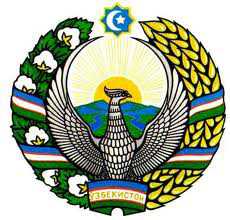 ciation to their work in various spheres and easing the burden of our women and sisters who take care of a household. I wish we all remember that we have a lot to do to realize this truth in practice.
ciation to their work in various spheres and easing the burden of our women and sisters who take care of a household. I wish we all remember that we have a lot to do to realize this truth in practice.
Certainly, I believe that the government and non-government organizations, local authorities, neighborhood communities, representatives of women and youth, intelligentsia, broad public and our entire nation will actively and worthily participate to accomplish the extensive tasks we have put forward for 2013.
My dear compatriots!
I am confident that naming the forthcoming year in our country as “The Year of Prosperous Life” will become yet another tremendous step in terms of ensuring the human rights, interests and freedoms which stand as a core and supreme goal of our policies during the years of independence and making our life further prosperous and free, as well as our future – even brighter.
Time and again, I wish all of you a sound health, happiness, success and abundance to your families.

